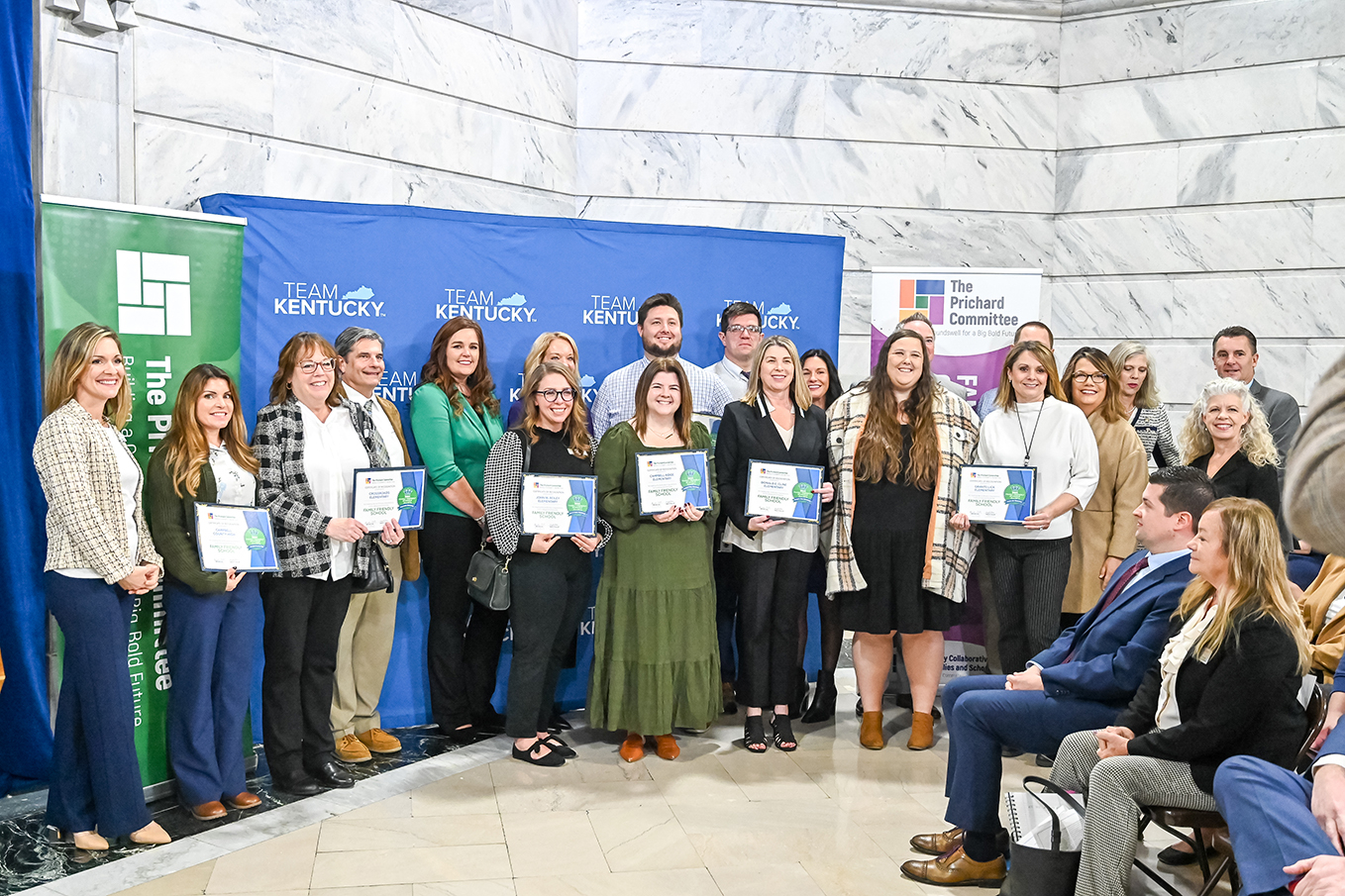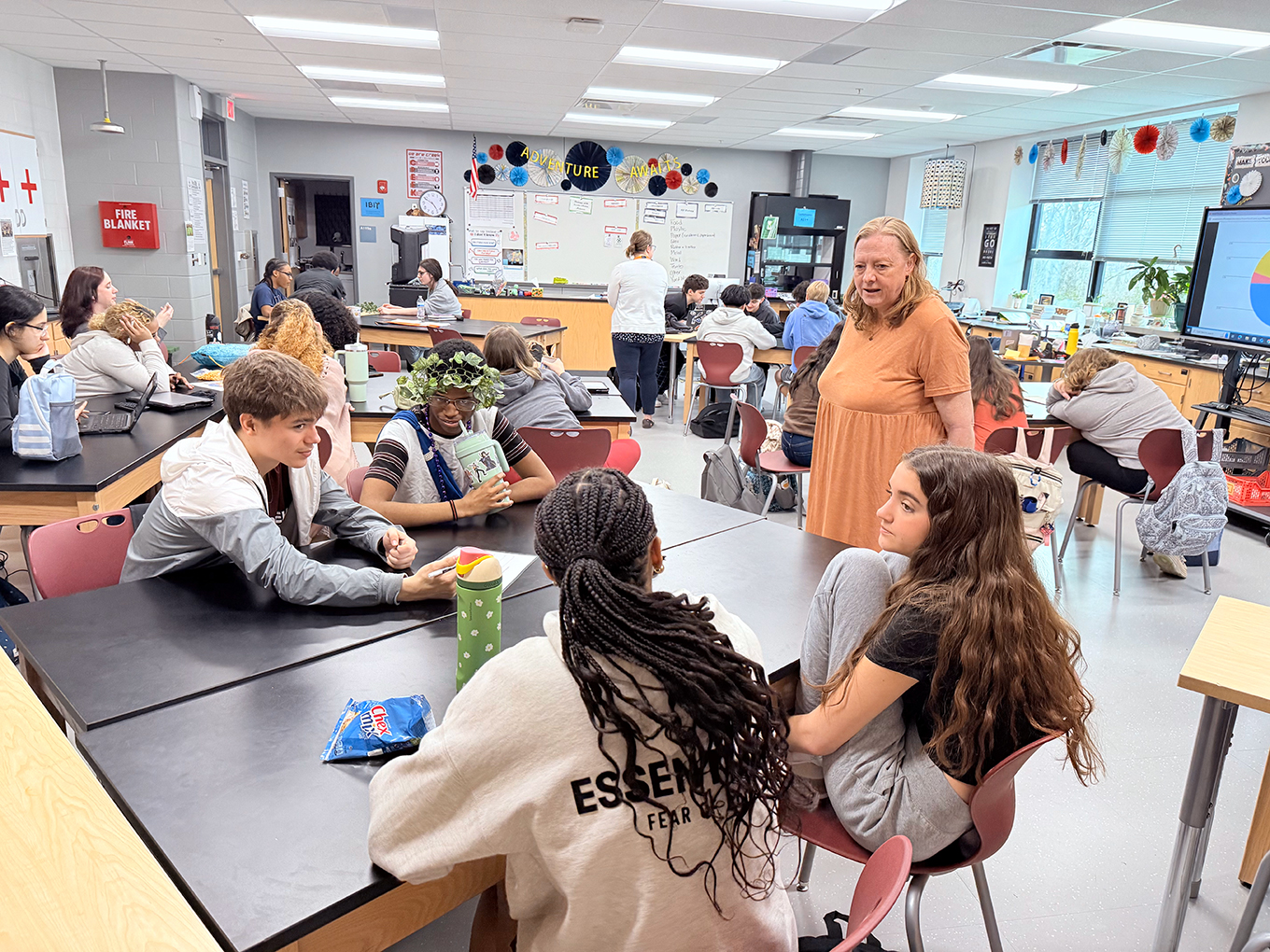By Natalie McCutchen, Mike Stacy and Brad Clark
Across the state, self-reflective teachers and supportive administrators are building communities of practice where all stakeholders are re-evaluating all aspects of instructional effectiveness. This is a time of rapid, meaningful change in our schools.
As Kentucky educators embark on this intensive professional learning continuum, we must find new ways to guide student learning toward mastery of the content, concepts and skills required of 21st-century learning.
In this context, we must also re-evaluate the role of grading practices in our classrooms.
Student achievement and yearly growth are ultimately measured by a student’s depth of understanding of agreed-upon standards within the disciplines. There are requisite thinking skills, content, and conceptual understandings that students must master if they are going to achieve and grow as learners. If these goals are always in the forefront of our grading practices, then any number of alternative grading formats and systems can be successful.
What must teachers, administrators and students consider in implementing alternative grading practices?
- Grades earned in a classroom must reflect student mastery of necessary content, skills and standards, which means that rewarding students solely for being organized, on task, on time or participatory through grades is antiquated and must be re-evaluated. Soft skill development can also be evaluated and measured, but a letter grade in math should be a reflection of a student’s performance in mathematical content, concepts and skills.
- In order to communicate students’ progress and growth throughout the course of their learning, teachers must re-evaluate the value of the letter grading system. What does an ‘A’ or ‘B’ really mean? If we are going to initiate 21st-century grading practices in our classrooms we must abandon the 20th-century labels that far too often simply measure a student’s executive function skills. Terms such as Struggling, Progressing, Proficient, Exemplary, Below Standards, Working Toward Standards, Meeting Standards or Exceeding Standards are more apt descriptions of a student’s achievement.
- Students must have multiple opportunities to show mastery of content and skills. A one-time unit assessment or quiz simply does not offer students ample opportunity to demonstrate growth. Assessment cannot be a “gotcha” mechanism within the classroom. Learners should be able to demonstrate their understanding early (pre-test) and often (with retakes of assessments being the norm). The most recent formative assessment of students’ learning is the most accurate measure of what they know. Shouldn’t that be the ‘grade that counts’? Our current definitions and value placed on classroom summative assessments often forget that learning is always ongoing.
- If we want our students to be independent learners, they must be actively involved in grading. Students cannot be passive recipients of grades but should have an integral part in the development of a standards-based assessment system. They must engage in both self-assessment and peer assessment, so that they have ‘skin in the game.’ Independent learners must manage their own performance data, understand the learning rate of their peers and help to shape their own next steps for learning.
There is no greater time to reflect on and refine our assessment and grading practices than now. Throughout the state, teachers and administrators are working together to explore the intricacies of the Teacher Professional Growth and Effectiveness System (TPGES) framework.
“Designing Student Assessments” (Domain 1, Component F) and “Using Assessment in Instruction” (Domain 3, Component D) are two specific areas of the TPGES framework that could easily incorporate alternative grading practices, including standards-based grading.
But standards-based grading is no magic pill. It will not automatically equate to higher student achievement, performance and growth. Standards-based grading will promote improved data literacy and create the conditions for teachers to increase the intentionality of their instructional practice through self-reflection.
In this way, effective grading practices aligned to student outcomes and discipline-specific standards become an integral component within the context of a more comprehensive, multi-layered assessment system that can drive 21st-century learning.
Alternative grading practices can provide the ongoing, quantitative measures that allow teachers to monitor continuous growth of their students. As teachers master this area of the instructional design of their classrooms, they are then able to engage in more qualitative forms of performance assessments that measure students’ ability to demonstrate competency in various 21st-century skills.
Neither standards-based quantitative assessments nor performance-based qualitative assessments can stand alone. They are equally important components of a multi-layered, mixed-method assessment system; a system that accurately measures student achievement, performance and growth daily. Both are integral members of an ongoing data collection process that allows teachers not only to reach the exemplary ratings within the TPGES, but more important, design meaningful, more individualized instruction responsive to the needs of the students and communities they serve.
We, as professional educators, have the capacity and power to harness the best aspects of standards-based quantitative and performance-based qualitative measures. If we do so, we will transform how our profession uses assessment systems to diagnose and fulfill the needs of 21st-century Kentucky classrooms.
Natalie McCutchen teaches 7th-grade mathematics at Franklin-Simpson Middle School (Simpson County). Mike Stacy is the chief academic officer for Woodford County schools and is a former elementary, middle and high school administrator. Brad Clark is an English/language arts and social studies elementary teacher at Simmons Elementary School (Woodford County). He is also a blogger for the Center for Teaching Quality. McCutchen and Clark are Hope Street Teacher Fellows.




Leave A Comment